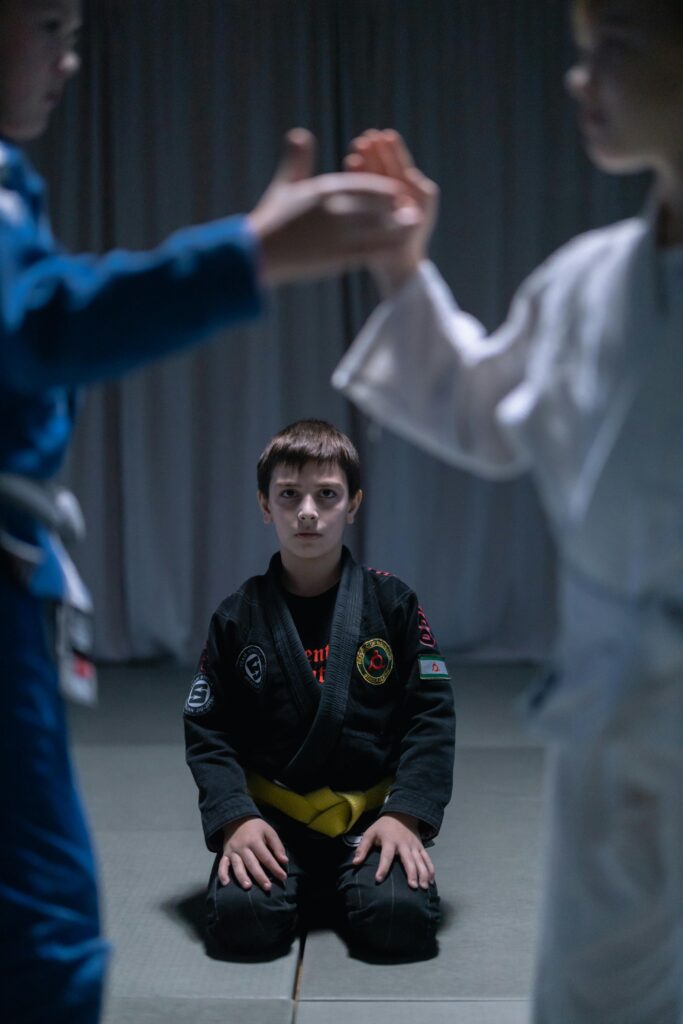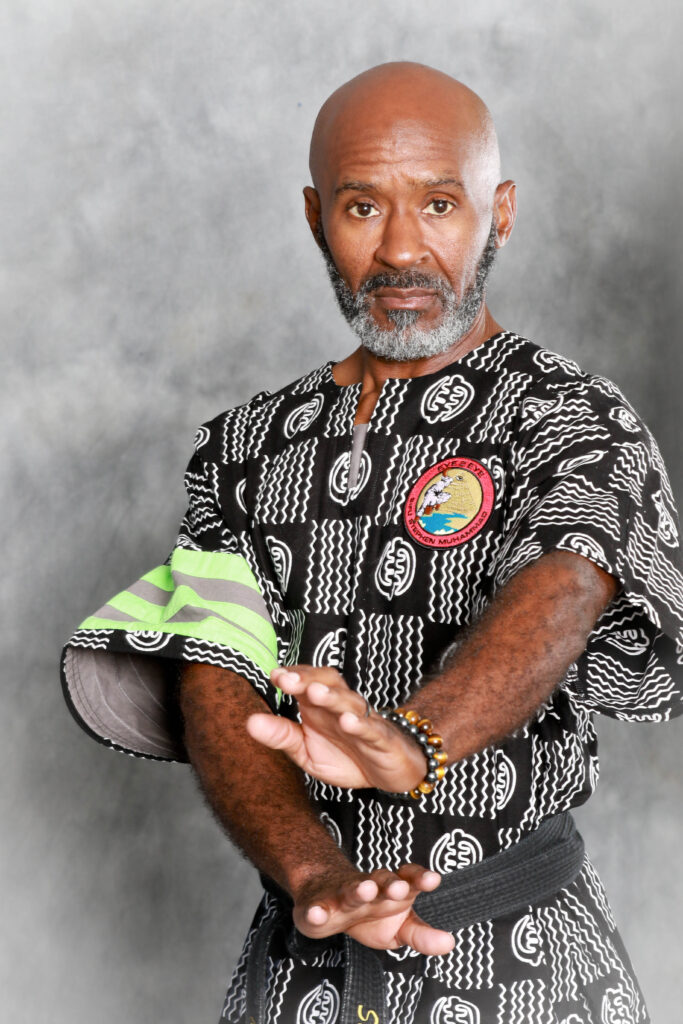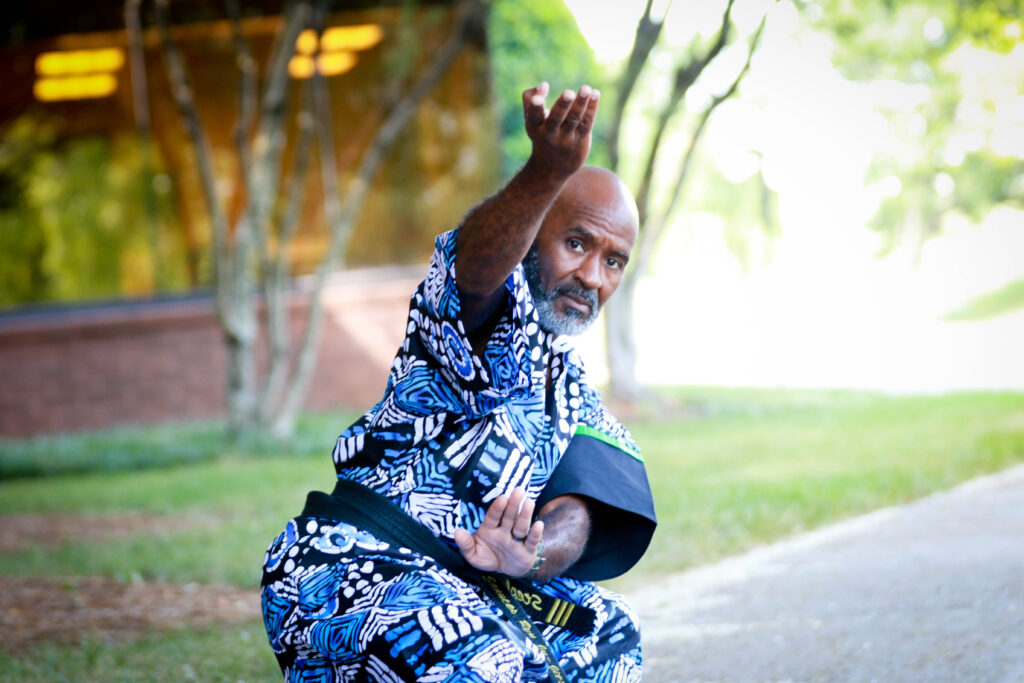I often get asked by parents, “How can I help my child become more confident?” It’s a great question because every parent wants their child to grow up feeling strong, secure, and able to face the world’s challenges.
One of the best ways to build that confidence is by teaching them discipline and respect. These two values are more than just rules—they’re tools that guide a child to understand their abilities, recognize their strengths, and value themselves and others.
In this article, I’ll explain how discipline and respect contribute to a child’s self-confidence and share some practical ways you can instill these values in your little one.
Understanding the Foundation of Discipline and Respect
A child’s growth can be nurtured much more effectively when discipline and respect are understood, as this sets the stage for a child’s future success.
What is Discipline?
I often think of discipline as a roadmap. Without it, kids might feel lost or unsure of how to reach their goals. When I talk about discipline, I’m not referring to strict punishments but rather creating a structure that encourages positive behavior and decision-making.
This structure helps kids understand the consequences of their actions, builds their self-control, and empowers them to make better choices.
What is Respect?
Now, respect is like the compass that guides kids as they navigate that roadmap. It teaches them to value themselves and others, which is key in building strong relationships and a healthy self-image.
When children understand respect, they learn empathy and the importance of boundaries—both theirs and others’. This understanding fosters a sense of responsibility and maturity that’s essential for confidence.
The combination of discipline and respect lays a solid foundation. Think of it this way: discipline sets the framework for how kids behave, and respect ensures that those behaviors are positive and considerate.
Together, they provide a clear path for children to follow, making them feel more secure and confident in their abilities.
The Link Between Discipline, Respect, and Self-Confidence
You might wonder, how do discipline and respect actually contribute to a child’s self-confidence? It’s simple—both values provide a sense of stability and self-worth.
Discipline Fosters Inner Strength and Resilience
When a child learns to follow a routine or stick to a set of rules, they begin to see the results of their actions.
Whether it’s the satisfaction of completing a task or the reward of earning praise, these small wins help them build inner strength. They start to associate discipline with success, and that’s a huge confidence booster.
I’ve seen kids light up after mastering a new martial arts move because they understand that their hard work and focus made it happen.
Respect as a Building Block for Positive Self-Image
Respect isn’t just about treating others kindly. It’s also about how children see themselves.
When they learn to respect their own needs and boundaries, they start to feel more comfortable in their own skin. This self-respect makes them less likely to give in to peer pressure or self-doubt. They know their worth and aren’t afraid to stand up for it.
Children who are taught these values understand that they have control over their actions and that their actions have value. This realization fuels a strong sense of self-confidence that stays with them as they grow.
Practical Ways to Instill Discipline and Respect in Children
Every family is different, but here are some practical ways I’ve found effective for instilling discipline and respect:
Establish Consistent Rules and Expectations
Consistency is key when it comes to discipline. I’ve seen parents get frustrated when their child doesn’t follow the rules, but the problem often isn’t the child—it’s the inconsistency.
Make sure that expectations are clear and consistent. If you set a rule, stick to it. Kids need to know that you mean what you say. This reliability helps them feel secure and respected.
Teach Respect Through Role Modeling
Kids are great imitators. If they see you speaking respectfully to others, handling frustration calmly, and treating yourself with care, they’re more likely to mirror that behavior. Actions speak louder than words, and respect is best taught by example.
Encourage Open Communication and Listening
I’ve noticed that many parents find it challenging to listen to their child’s opinions, especially when they disagree.
However, showing respect for your child’s perspective, even when setting limits, teaches them that their thoughts and feelings matter.
Encourage them to talk about their day, share their ideas, and express themselves openly. This open communication fosters mutual respect and understanding.
Benefits of Discipline and Respect for a Child’s Self-Confidence
The benefits of teaching discipline and respect go far beyond just good behavior. Here’s what I’ve observed:
Improved Social Skills and Peer Relationships
Kids who understand respect are more likely to have positive social interactions. They know how to share, listen, and empathize, which makes them better friends and classmates.
This social competence boosts their confidence in group settings, whether it’s at school or in a self-defense class.
Enhanced Problem-Solving Abilities
When kids learn discipline, they also learn how to think before acting. This skill helps them approach problems with a clear mind.
Instead of reacting impulsively, they pause and consider different solutions, which leads to better outcomes and higher self-esteem.
A child with these skills is prepared for life’s ups and downs. They’re not just following rules; they’re developing a mindset that helps them thrive.
Addressing Common Challenges in Teaching Discipline and Respect
I get it—teaching discipline and respect isn’t always smooth sailing. There will be days when it feels like you’re talking to a wall or when you just want to give up. But don’t!
Every effort you put in pays off in the long run. Here are some common challenges and how to tackle them:
Overcoming Resistance and Negative Behavior
Children will push back, especially if they don’t understand why a rule exists. Try not to enforce rules with a “because I said so” attitude. Instead, explain the reason behind each rule.
For example, if you set a bedtime, explain how sleep helps them grow and feel better during the day. When kids understand the “why,” they’re more likely to follow the “what.”
Avoiding Authoritative Approaches
It’s easy to resort to an authoritative approach when kids test boundaries. But strict enforcement without understanding can lead to resentment. Instead, use a collaborative approach.
Phrases like, “Let’s figure out a solution together” or “I’m interested in your thoughts” show that you value their input, even when setting limits.
A little empathy goes a long way. When kids feel heard, they’re more likely to respect you and follow the rules.
Long-Term Impact of Discipline and Respect on Self-Confidence
I’ve seen kids come through our doors at Eye2Eye Combat lacking confidence and unsure of themselves. Over time, as they learn discipline and respect through martial arts training, I watch them transform.
They walk a little taller, speak a little louder, and start to believe in their own abilities. This change isn’t just about mastering a punch or a kick—it’s about mastering their own mindset.
When discipline and respect are taught early on, they become part of the child’s character. They carry these values into adulthood, influencing how they approach challenges, build relationships, and handle setbacks.
Children who understand discipline know how to set goals and work towards them. Children who value respect know how to treat others and themselves well, which fosters positive interactions in all areas of life.
This strong foundation of values leads to a more confident adult who isn’t afraid to take risks, stand up for what they believe in, and pursue their dreams with determination.
Build More Than Just Skills—Build Confidence and Respect with Eye2Eye Combat
It’s clear that teaching discipline and respect is key to helping children build their self-confidence. When these values are nurtured early on, they create a foundation for children to handle life’s challenges with grace and resilience.
At Eye2Eye Combat, we make it our mission to cultivate these qualities in every student. Our classes don’t just focus on martial arts techniques—they’re about transforming kids from the inside out, giving them the tools they need to succeed both on and off the mat.
If you’re looking for a place where your child can grow into a confident, respectful, and strong individual, I invite you to explore what Eye2Eye Combat has to offer.
Come visit us, see a class in action, and discover how our approach can help shape your child’s future. Let’s empower the next generation together!
FAQs
1. What role does discipline play in a child’s self-esteem?
Discipline provides children with structure and consistency, which makes them feel secure and understood. When a child knows what’s expected of them and sees the positive results of their actions, they start to believe in themselves. This builds their self-esteem because they see that they have the ability to make good choices and achieve their goals.
2. What is the likely effect of harsh discipline on a child’s self-esteem?
Harsh discipline can damage a child’s self-esteem by making them feel fearful or inadequate. When discipline comes with anger or criticism, kids might internalize the negative feelings, thinking they’re not good enough. This can lead to anxiety, low self-worth, and difficulty trusting themselves. It’s crucial to use discipline that guides rather than punishes.
3. What is the importance of self-discipline and self-confidence?
Self-discipline and self-confidence go hand-in-hand. Self-discipline helps children set goals, stay focused, and persevere through challenges. When they see the results of their efforts, they build confidence in their abilities. This combination equips them to take on new tasks without fear of failure, fostering a sense of self-assurance that will benefit them throughout life.
4. What are the benefits of disciplining a child?
Positive and consistent discipline teaches children responsibility, self-control, and respect for others. It helps them understand boundaries, manage their emotions, and make thoughtful decisions. The benefits go beyond behavior—kids who learn discipline are more likely to succeed in school, form healthy relationships, and handle stressful situations with calmness and maturity.
5. What are the effects of discipline on children?
When done correctly, discipline helps children develop self-discipline, respect, and a strong moral compass. They learn to understand the consequences of their actions, which leads to better decision-making and emotional control. This positively impacts their self-esteem and social skills, making them more confident and capable of handling various situations as they grow.
6. Why is respect important for a child’s self-confidence?
Respect teaches children to value themselves and others, which is crucial for building healthy self-confidence. When kids feel respected by their parents and peers, they see themselves as worthy and capable. This sense of self-worth makes them more confident in expressing their opinions, making decisions, and standing up for themselves in various situations.





